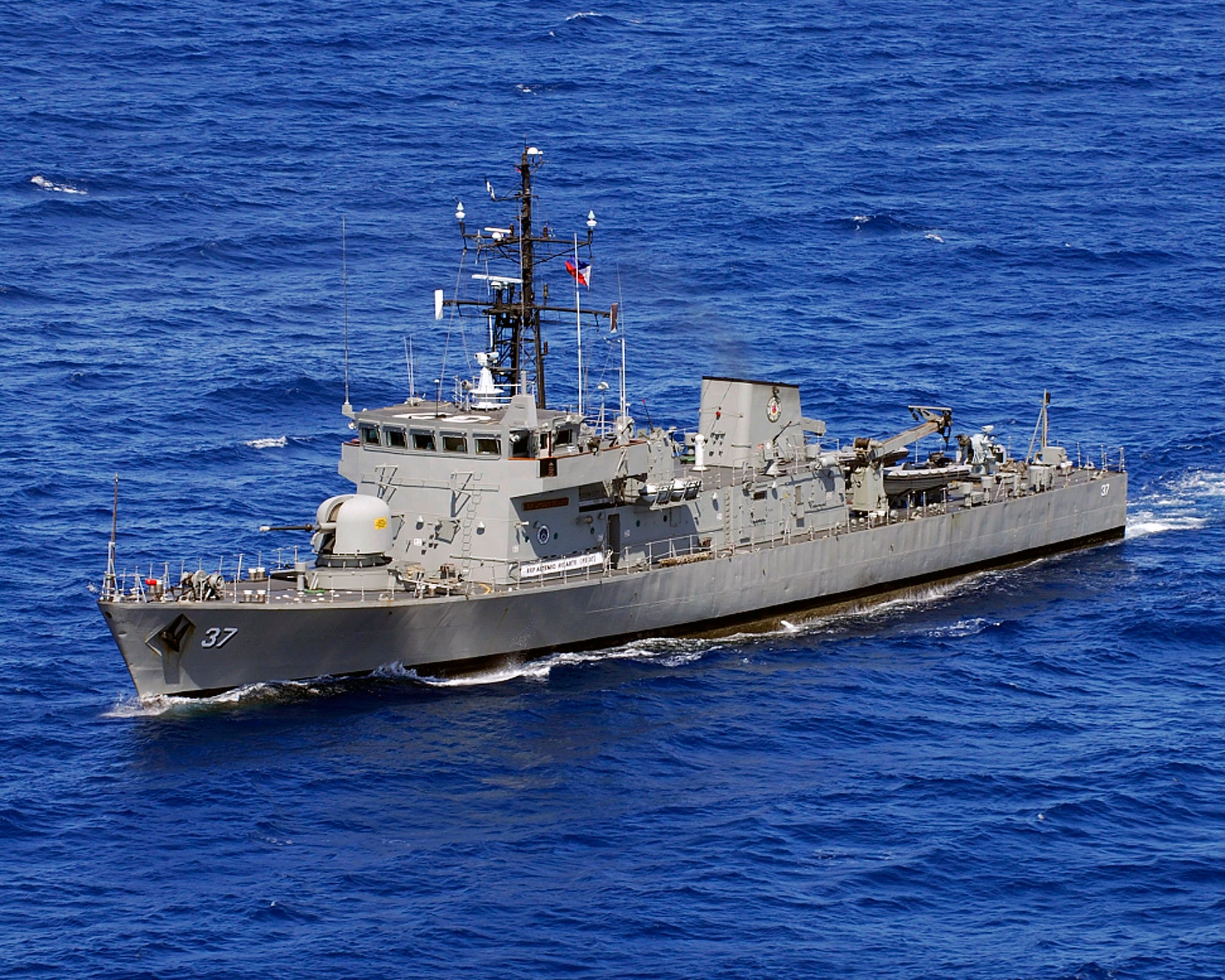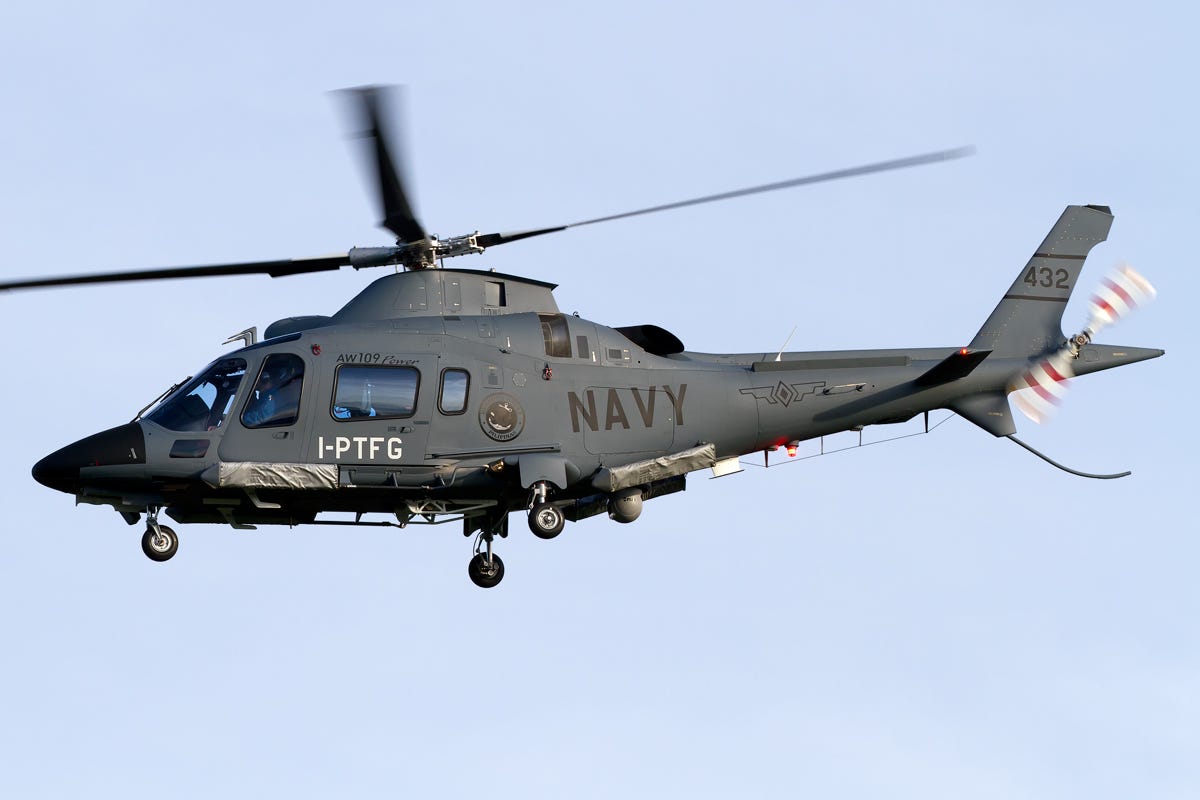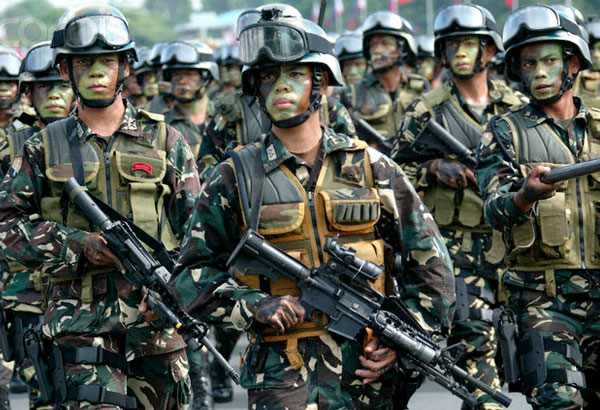From Rappler (Jan 8):
'Walang batayan': PH hits China in Filipino FAQs on sea row
The Philippine Department of Foreign Affairs releases a Filipino primer on the maritime dispute 'to facilitate understanding by ordinary Filipinos'
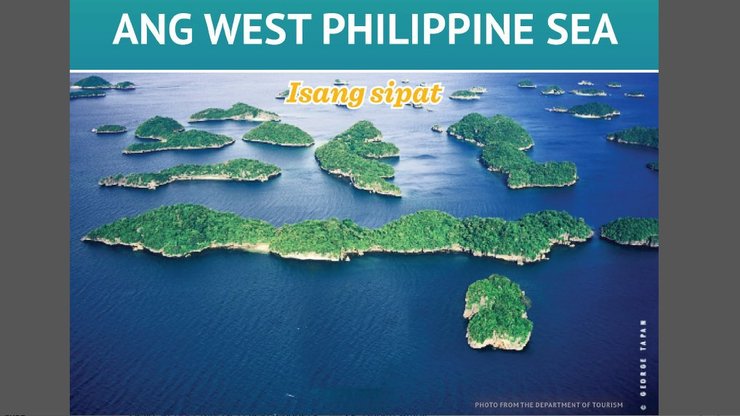 FILIPINO PRIMER.
The DFA launches a digital pamphlet on the West Philippine
Sea to explain the maritime dispute to ordinary Filipinos.
Screenshot of West Philippine Sea: Isang Sipat
“Ano ang batayan ng Tsina sa inaangkin nitong
FILIPINO PRIMER.
The DFA launches a digital pamphlet on the West Philippine
Sea to explain the maritime dispute to ordinary Filipinos.
Screenshot of West Philippine Sea: Isang Sipat
“Ano ang batayan ng Tsina sa inaangkin nitong nine-dash line
?” (What is China’s basis for its 9-dash line claim?)
This is just one of the questions the Philippines’ Department of Foreign Affairs (DFA) asks and answers in a new primer on the South China Sea dispute tailor-made for one crucial audience: the Filipino masses.
The DFA launched on Wednesday, January 7, what it called a digital pamphlet titled “Ang West Philippine Sea: Isang Sipat” (The West Philippine Sea: An Overview), a 4-page explainer written purely in Filipino. (See full primer below.)
The department said in a statement that the pamphlet aims “to serve as an accessible and comprehensible resource material” on the West Philippine Sea (WPS), the term Manila uses to refer to parts of the South China Sea that it claims.
The Presidential Communications Development and Strategic Planning Office (PCDSPO) helped the DFA develop the primer.
DFA Spokesperson Charles Jose explained that the pamphlet was written “to further facilitate understanding by ordinary Filipinos.”
“The current focus on the maritime disputes in the West Philippine Sea has made it clear that we need to foster the ‘archipelagic consciousness’ among our people,” Jose said.
“By understanding the fundamental link between our maritime heritage and our identities as Filipinos, we build the unshakeable will to defend our maritime domain.
That is the purpose of this pamphlet and all the other public diplomacy efforts we have been undertaking,” the spokesperson added.
In the pamphlet, the Philippines again accuses China of violating international law, questions the legal basis of China’s 9-dash line claim, and seeks support for its historic arbitration case against Beijing. (READ: Rough seas: Will PH 'lawfare' work vs China?)
The following are the 8 questions the primer addresses:
- Nasaan ang Karagatang Kanlurang Pilipinas o West Philippine Sea at bakit ito mahalaga sa akin bilang Pilipino? (Where is the West Philippine Sea, and why does it matter to me as a Filipino?)
- Anu-ano ang karapatang pandagat o maritime entitlements ng isang bansang tulad ng Pilipinas? (What are the maritime entitlements of a country like the Philippines?)
- Bakit may alitan kaugnay ng West Philippine Sea/South China Sea? (Why is there a dispute over the West Philippine Sea/South China Sea?)
- Ano ang inaangkin ng Pilipinas sa South China Sea at ano ang batayan nito? (What is the Philippines claiming in the South China Sea, and on what basis?)
- Ano ang batayan ng Tsina sa inaangkin nitong nine-dash line? (What is China’s basis for its 9-dash line claim?)
- Ano ang karapatan ng Pilipinas sa ilalim ng batas pandaigdig na nilalabag ng Tsina? (What are the Philippines’ rights under the international law that China is violating?)
- Mayroon bang batas pandaigdig na nakasasaklaw sa alitan ng South China Sea? (Is there an international law that covers the South China Sea dispute?)
- Bakit naghain ng kasong arbitrasyon ang Pilipinas laban sa Tsina? (Why did the Philippines file an arbitration case against China?)
The explainer includes maps and illustrations, and short descriptions of the maritime features the Philippines claims like Scarborough Shoal and Second Thomas (Ayungin) Shoal, using their Philippine names.
The pamphlet is just the latest effort of the DFA to use information and education to promote the Philippines’ maritime claims, and Manila’s historic arbitration case against Beijing. China has its own media offensive, and releases its own position paper with question-and-answer explainers.
Jose recently told Rappler that the DFA is planning to
include the West Philippine Sea in the elementary and high school curriculum, as the department continues its nationwide information drive on the issue.
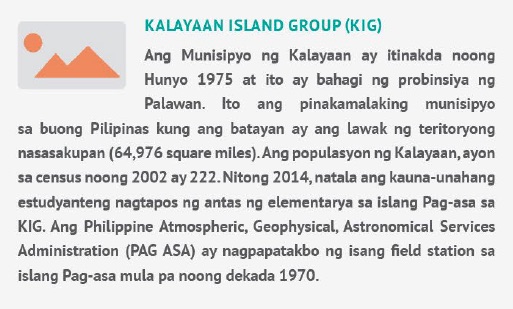
EXPLAINING FEATURES. A screenshot of the DFA primer explaining the maritime features the Philippines claims. Courtesy: DFA, PCDSPO
The South China Sea is hotly disputed as it is a major shipping route, fishing ground, and is believed to hold vast deposits of oil and gas. Vietnam, Malaysia, Brunei, and Taiwan also claim parts of the strategic sea.
Why care about the West PH Sea?
Before going into legal arguments and jargon, the DFA took pains to explain why ordinary Filipinos should care about the dispute.
Ang West Philippine Sea: Isang Sipat stated that the West Philippine Sea holds marine resources like corals, fish and oil that affect the Philippines’ economic growth, and environmental, energy and food security.
“Isang sentro ng yamang heolohiko (geological resources)
ang karagatan sa kanluran at timog-kanluran ng Pilipinas. Napagtibay na ng agham na may malaking bukal ng langis, gas, at iba pang yamang mineral ang bansa, lalo pa sa bahaging Palawan/Pampang Recto (Recto Bank)
ng WPS,” the primer stated.
(The sea in the south and southwest of the Philippines is a center of geological resources. Science showed that the country has a wealth of oil, gas, and other mineral riches, especially in the area of Palawan/Recto Bank of WPS.)
The primer then explained the different maritime entitlements under the United Nations Convention on the Law of the Sea (UNCLOS), the treaty the Philippines uses to question China’s expansive sea claims. Both the Philippines and China are parties to UNCLOS.
These entitlements include the exclusive economic zone (EEZ), which provides a state the exclusive right to explore and exploit natural resources like fish and oil 200 nautical miles from its baselines.
The primer said that instead of abiding by UNCLOS, China insists on using its 9-dash line to assert “indisputable sovereignty” over the South China Sea.
It stated that the line overlaps with 80% of the Philippines’ EEZ and continental shelf, and those of Vietnam, Malaysia and Brunei.
“
Walang batayan sa UNCLOS ang nine-dash line
ng Tsina at hindi nakatutulong sa adhikain ng mga bansa na bigyan ng solusyong pangmatagalan at makabuluhan ang sapawan sa mga sonang pandagat,” the primer stated.
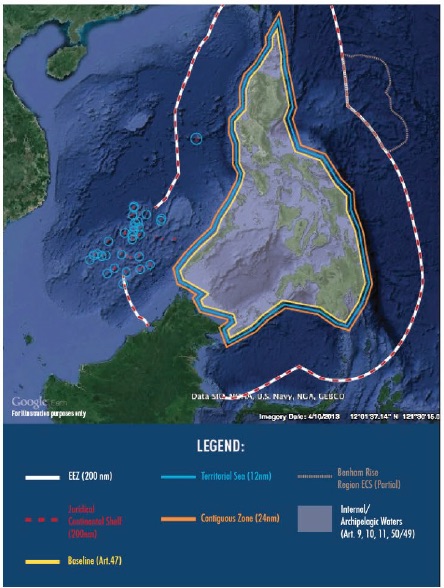
MARITIME ENTITLEMENTS. A screenshot of the DFA primer explaining the maritime entitlements under the law of the sea treaty. Courtesy: DFA, PCDSPO
(China’s 9-dash line has no basis in UNCLOS, and it does not help the objective of nations to find a durable and meaningful resolution to maritime disputes.)
Why support arbitration?
The DFA also sought to explain its legal strategy of going to arbitration, which drew both support and criticism as legal and foreign policy experts
debate on the implications of the Philippines’ move against Asia’s rising superpower.
The primer though said that many scholars support the Philippines’ tack of using international law to resolve the dispute.
It added that influential countries like the US, Japan, India, Australia, the European Union and the G7 bloc gave statements of support for the Philippine position.
“Patunay ang mga pagpapahayag na ito ng suporta na kahit maraming bansa ang hindi nagpapakita ng pagkiling sa mga isyung panteritoryo, sumusuporta pa rin sila sa pangkalahatang direksiyon ng polisiya ng Pilipinas sa usaping WPS.”
(These statements of support are proof that while many nations do not have a position on territorial issues, they support the general direction of the Philippine policy on the WPS.).
The DFA urged ordinary Filipinos to also support the move.
“Sa anumang alitan, pinakamainam na solusyon ang nakabase sa katuwiran, na siyang pagdedesisyunan ng isang partidong walang kinikilingan. Bago mahuli ang lahat, nagpasya ang Pilipinas na harapin sa hukuman ang Tsina, upang ipagtanggol at pangalagaan ang karapatan nito at ng mga susunod na salinlahi ng Pilipino.”
(In any argument, the best solution is one based on reason, that an impartial party will decide on. Before it’s too late, the Philippines decided to face China in court to defend and protect its rights, and the rights of the next generations of Filipinos.)
http://www.rappler.com/nation/80097-ph-hits-china-filipino-faqs-sea-row





